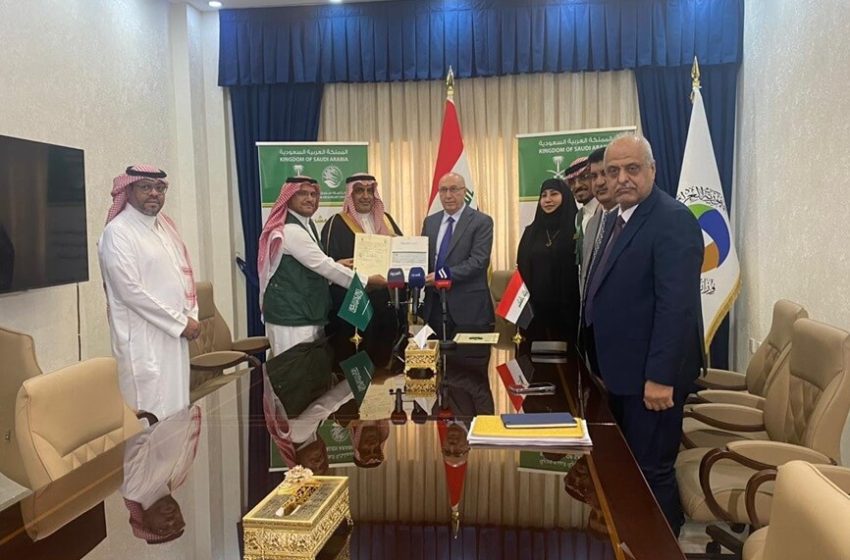Iraq, Saudi Arabia sign agreement to remove cluster bomb remnants

The Iraqi Minister of Environment, Nizar Amedi, the Saudi ambassador to Iraq, Abdulaziz Al-Shammari and representatives of King Salman Humanitarian Aid and Relief Centre. Photo: INA
Baghdad (IraqiNews.com) – The Iraqi Minister of Environment, Nizar Amedi, signed a memorandum of understanding with Saudi Arabia’s King Salman Humanitarian Aid and Relief Centre to remove cluster munitions contamination from the Muthanna governorate’s desert.
The Environment Ministry said in a statement that the memorandum of understanding includes a financial grant that will be used for the removal of cluster explosive residues in the desert of the southern Iraqi governorate, the Iraqi News Agency (INA) reported.
Iraq has approximately 91 square kilometers contaminated with military munitions, mostly in the desert of Muthanna governorate.
Iraq is among the countries with the highest concentration of explosive ordnance worldwide.
Amedi announced in August that 59 percent of the areas contaminated with mines have been cleared.
Amedi confirmed that Prime Minister Mohammed Shia Al-Sudani prioritizes issues related to the environment, adding that sufficient funds have been allocated in the federal budget to clear areas planted with landmines, according to INA.
“Iraq has cleared 59 percent of the areas contaminated with mines, and the remaining 41 percent represent more than 2,000 square kilometers,” Amedi said.
In March 2023, Amedi stressed the seriousness of the ministry, particularly the Directorate for Mine Action (DMA), to declare Iraq free of mines by 2028, in accordance with Iraq’s obligations towards the Anti-Personnel Mine Ban Convention, known informally as the Ottawa Treaty.
Landmine contamination in Iraq is partly due to the mines laid by ISIS terrorists to defend the territory it once controlled over Iraq and Syria, according to Reuters.
Iraq was already heavily contaminated as a result of the 2003 invasion by the US-led coalition, the 1991 Gulf War, and the 1980–1988 Iran–Iraq war.
